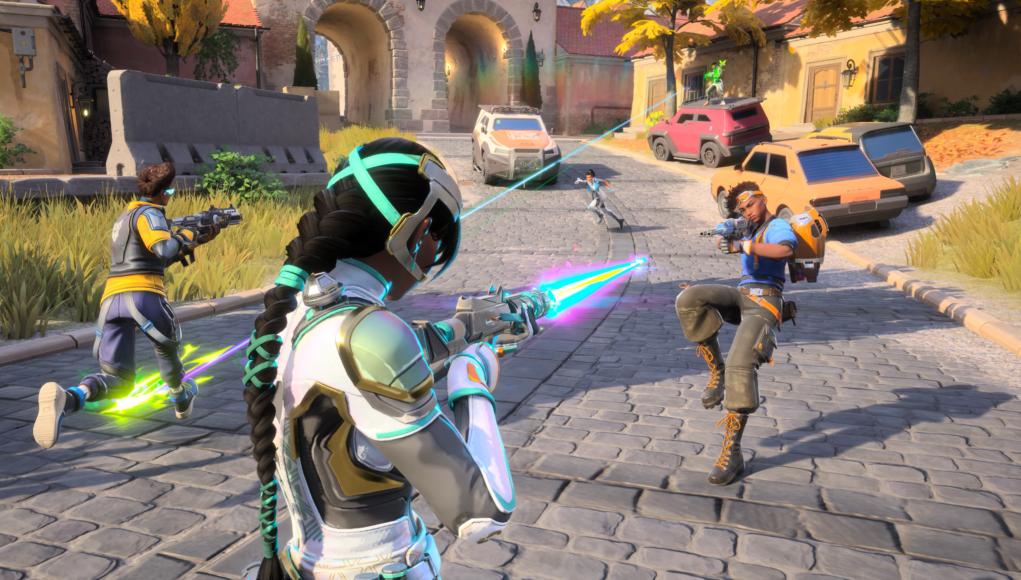In a competitive gaming landscape dominated by titles like Fortnite, Apex Legends, and Overwatch 2, it’s always intriguing when a new challenger steps into the ring. Enter Project Ethos, a third-person hero shooter from 31st Union, backed by publisher 2K Games. The game, still in its early development phase, is looking to carve out a niche in the crowded arena by blending familiar gameplay elements with a few twists of its own.
Earlier this week, 2K invited streamers, influencers, and select media (including yours truly) to Los Angeles for the grand reveal and a hands-on playtest. Described as a “roguelike hero shooter,” Project Ethos promises tactical variety with its evolving in-match upgrade system, but it’s not quite as roguelike as some might expect. Instead of persistent death mechanics or procedurally generated levels, the game offers random, match-based power-ups that players choose from as they progress—giving them a chance to create diverse and dynamic playstyles.
At first glance, Project Ethos bears more than a passing resemblance to Fortnite, with its colorful art style, third-person perspective, and reliance on agile movement mechanics like sliding, gliding, and ziplines. However, the game’s focus on hero-based combat—where each character wields a unique set of weapons and abilities—puts it in line with other hero shooters like Apex Legends and Overwatch. What sets Project Ethos apart is its core gameplay mode, Trials, a lower-stakes PvPvE extraction-style format.
In Trials, three-player squads race to complete PvE objectives—like taking down robotic enemies or capturing resources called Cores—while fending off rival squads that may also be vying for those same objectives. Unlike hardcore extraction shooters like Escape from Tarkov or The Cycle: Frontier, though, there’s no risk of losing your gear, and even if your team fails to extract, you still take home Cores to invest in permanent upgrades for future matches.
The experience is less about high-tension, winner-takes-all stakes and more about incremental progress. Players who successfully extract earn bonuses, but even those who don’t can still feel a sense of accomplishment by completing objectives and gaining XP. It’s a softer approach to extraction gameplay, which may appeal to players looking for a more forgiving multiplayer experience.
The six heroes currently available in the early build of Project Ethos each bring their own tactical flair. My personal favorite during the playtest was Prism, a sniper with the ability to cloak and highlight enemies through a ring of light, making her a deadly long-range threat. Then there’s Arbor, a versatile support character who can toggle between dealing poison damage in an area-of-effect and healing his allies. Both characters felt distinct and offered plenty of opportunity for strategic play.
The “roguelike” aspect of Project Ethos comes into play through mid-match “Evolutions.” These are randomized buffs players can choose from, which alter their hero’s abilities in interesting ways. For example, Arbor’s poison could be evolved to also heal teammates, or his healing ability might gain a speed boost. In theory, this system could create some fascinating combinations and synergies between team compositions. But it’s still too early to tell if Project Ethos will deliver the same kind of endlessly creative builds found in games like Risk of Rain 2 or Hades—especially since balance is always a concern in PvP environments.
While the characters felt fun and the mechanics solid, the world of Project Ethos is still lacking in distinctiveness. The map I played on during the extraction mode wasn’t particularly memorable, and its design felt more functional than inspired. Given that maps in shooters often serve as a major draw—think of the verticality of Apex Legends‘ Kings Canyon or the tight, engaging lanes of Call of Duty—this could be an area 31st Union will need to refine before launch.
The other mode on display was Gauntlet, a more straightforward team deathmatch tournament. The goal is simple: win three rounds before losing three. While fun in short bursts, it didn’t feel like the mode that will set Project Ethos apart from the heavy hitters of the genre. It was enjoyable, but not groundbreaking.
The announcement of Project Ethos is just the beginning. With a development timeline stretching back five years and a small team that has gradually grown in size, 31st Union is positioning the game for a long road ahead. The developer is placing a strong emphasis on player feedback throughout this phase, and they’re wasting no time getting people involved: a public playtest is already live, with players able to gain access through Twitch drops from streamers who attended the LA event.
The fact that Project Ethos will be free-to-play is another smart move, given the success of other popular free shooters like Fortnite and Apex Legends. The key challenge will be to ensure that its monetization strategy feels fair and balanced—especially in a market where pay-to-win concerns can quickly turn players away.
Project Ethos is still in the early stages, but it already shows promise. Its hero designs are varied and interesting, the randomized upgrades add a layer of strategic depth, and the PvPvE extraction mode offers a refreshing twist on familiar mechanics. However, the game will need more time to refine its identity, particularly when it comes to its maps and overarching design.
With a focus on player feedback and a free-to-play model, Project Ethos has potential to find its audience, but only time will tell if it can carve out a lasting place in a competitive genre. For now, it’s an intriguing work in progress—one worth keeping an eye on as it evolves.










